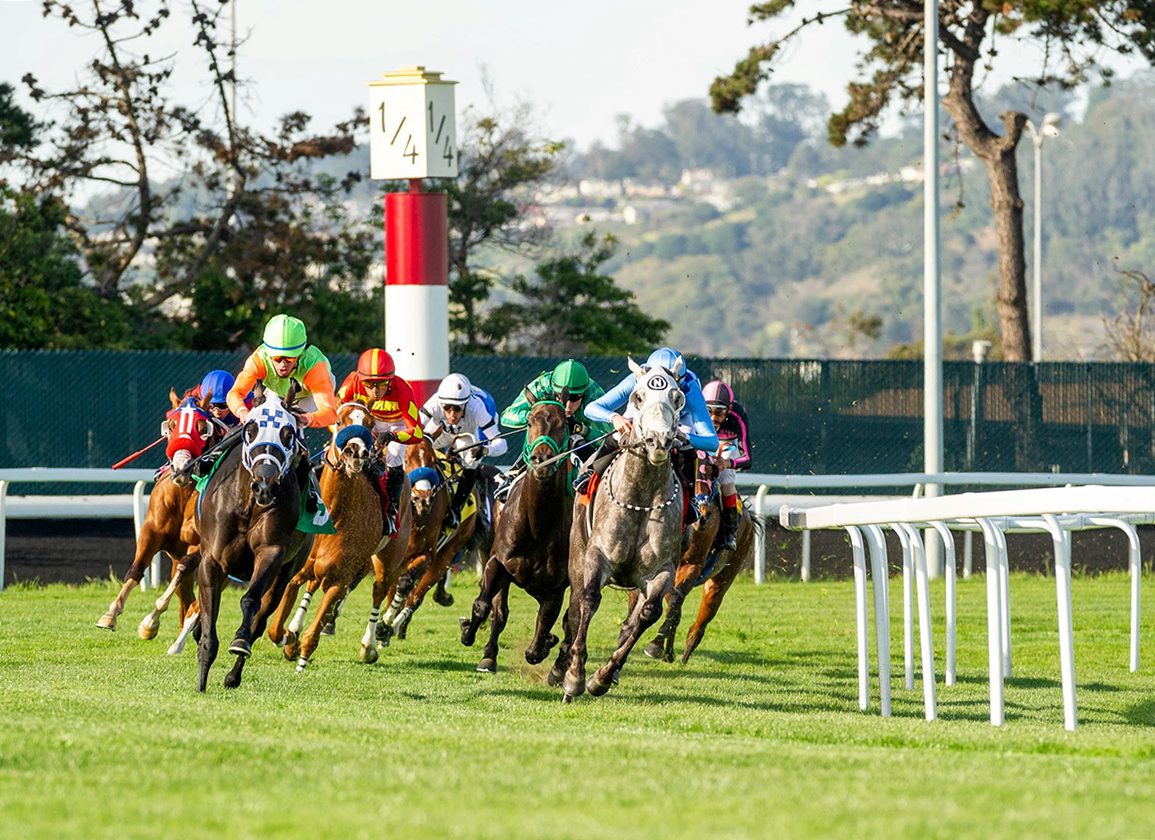By Dan Ross
After Sunday's announcement that The Stronach Group (TSG) will close at the end of the year its flagship Northern California racetrack, Golden Gate Fields, the company at the helm of the sale has gone silent, ignoring all of TDN's requests for comment this week.
To bring much-needed illumination on this seismic decision, the TDN spoke Thursday morning with Greg Ferraro, the California Horse Racing Board (CHRB) chairman.
Among several points raised, Ferraro shared his thoughts on the need for a fixed hub of racing in Northern California to secure the long-term viability of the state's racing industry, and for necessary renovations of Santa Anita's backstretch accommodation as a condition of licensure at the track.
Ferraro also expressed concern that TSG has not fully considered the potentially stark ramifications from Golden Gate's closure on the rest of the state's stakeholders, including the breeders, owners, trainers and other licensees.
“I have the feeling–I don't know–but I have the feeling since The Stronach Group hasn't put anything out there yet, that perhaps they don't have their plans fully developed,” Ferraro said.
Read part one of the interview here.
The CHRB chair, however, didn't just speak on Golden Gate Fields. Ferraro also shared his thoughts and concerns surrounding the ongoing rollout of the Horseracing Integrity and Safety Act (HISA)'s Anti-Doping and Medication Control (ADMC) program.
Part two of this interview has been lightly edited for brevity and clarity.
TDN: Let's shift gears and move on to the ongoing rollout of HISA's Anti-Doping and Medication Control program. Very broadly, how would you assess the job they've done so far?
GF: I would say it's inconsistent and uneven.
Their rules are somewhat complicated for people. Sometimes they haven't made things completely clear. But their application of the rules and their disciplinary actions have been uneven and inconsistent.
What the basic plan is, is to make a major cultural change in the way racing operates. And in order to do that, you have to have some trust within the industry. I don't think their initial steps have built any sense of trust. So going forward, the industry's a little reticent, let's put it that way.
TDN: What specifics can you point to when you say, 'inconsistent and uneven'?
GF: The incident with the joint injections where some trainers were fine and others weren't. Some horses were disqualified and others weren't. They withheld the names of violating trainers for a long time. Nineteen trainers.
Then there's the inconsistency in the enforcement of this provisional suspension [in the event of a positive for a banned substance]. That's been quite a concern to trainers because a trainer could be put out of business with basically no warning, the way they are going about it.
From a California point of view, we're always quite concerned about due process. [Trainer Ray] Handal is a perfect example. They suspended him. Then, once they looked into it, they found out it was contamination in the feed. It's happened before. The mill runs the cattle feed before they run the horse feed, and the horse feed is contaminated.
So here, this guy is knocked out of business for [nearly] a week, traumatized financially and emotionally, and then it's reversed.
[Note: Read more on the Handal situation here.]
Instead, if they had they just notified the trainer, investigated for a few days and had a hearing before [potentially] suspending somebody, it seems to me that's a fairer way to go. I think most of the trainers in California are used to that kind of system, and that's their feeling as well.
TDN: What you're saying is the current system of an automatic provisional suspension after a positive for a banned substance needs to be eliminated or modified?
GF: Yes. Given the American jurisprudence system of innocence until proven guilty and due process, I think it needs to be reorganized.
TDN: You mentioned joint injections. In California prior to HISA, the intra-articular corticosteroid fetlock injection rule mandated a 30-day stand down period prior to racing, and all intra-articular corticosteroid joint injections had a 10-day stand down before workouts. HISA's intra-articular joint injection rule requires a 14-day stand down before racing and a seven-day stand down before workouts. Do these weaker intra-articular joint injection rules concern you?
GF: Yes, that's a concern to us. It's a step backwards for California. We noticed once we put that rule in place in California, we dropped the musculoskeletal breakdowns dramatically. So, we think it's important.
We tried to get HISA to go along with [California's rules], but they wouldn't. We're still in discussions with them about it. We've cooperated a lot with HISA and we've been supportive of them. And I don't want to come across as being negative of HISA. But for California, you know, it's a bit of a step backward. It's a big expense. And we're not getting that much out of it because we've been ahead of the game nationally for quite some time now.
The corticosteroid issue is something they need to take another look at. Corticosteroids are not bad per se. But corticosteroids and high-speed works combined are not good at all.
Take any athlete that goes into training. Over time, their joint health degenerates. It's just part of what happens. You wear the surfaces down. You can't really slow that [process] down, but you can certainly speed it up. And one way to speed it up is to inject joints [with corticosteroids] in close proximity to high-speed works.
And so, what we've done in California–and what HISA needs to do–is impress upon the trainers that they need to discontinue this attitude of injecting to run or to work and look at corticosteroids as something that they use as a medical treatment combined with rest and other rehabilitative procedures.
Long-term, intra-articular corticosteroids should be eliminated completely from racing.
TDN: What argument does HISA give in pushing back against adopting California's stricter rules?
GF: You have to realize that much of the rest of the country had [weaker] rules [than California]. And so they say, 'we're getting so much pushback from the rest of the country that we can't do it.'
But what we've argued is to let California have its stricter rules and use us as a model. Then, at some point in time, you can go back to the rest of the country and say, 'well, California's had this rule in place and look what it's done. It's been beneficial. Why don't we adopt it nationwide?'
California is the point of the spear in terms of dealing with the public and the liability of horse racing. I think they should use us as a sort of leader in animal welfare and jockey welfare.
TDN: Do you think HISA's approach on this issue runs counter to their stated mandate of animal welfare and safety?
GF: Correct. What it takes is somebody with enough backbone to stand up to the pushback.
I mean, we got pushback in California, too. But we did what we thought was right and it's proven to be beneficial. Now, the horsemen look at us and say, 'well, we didn't like it in the beginning, but we realize it was worth the sacrifice.'
TDN: Are you worried California, after a sharp downward trend in equine fatalities in recent years, might now see an uptick in fatalities and injuries as a result?
GF: Absolutely. That's what our worry is.
TDN: Wow. Because of this, has the CHRB thought about the possibility of California opting out of HISA–at least until these fixes have been secured?
GF: No, we wouldn't do that. We're supportive of HISA overall. We think the concept of a standard rule nationwide is beneficial to the industry overall. These are growing pains. I think we're better off to work within [HISA]. Us pulling out is just not an option.
Not a subscriber? Click here to sign up for the daily PDF or alerts.







